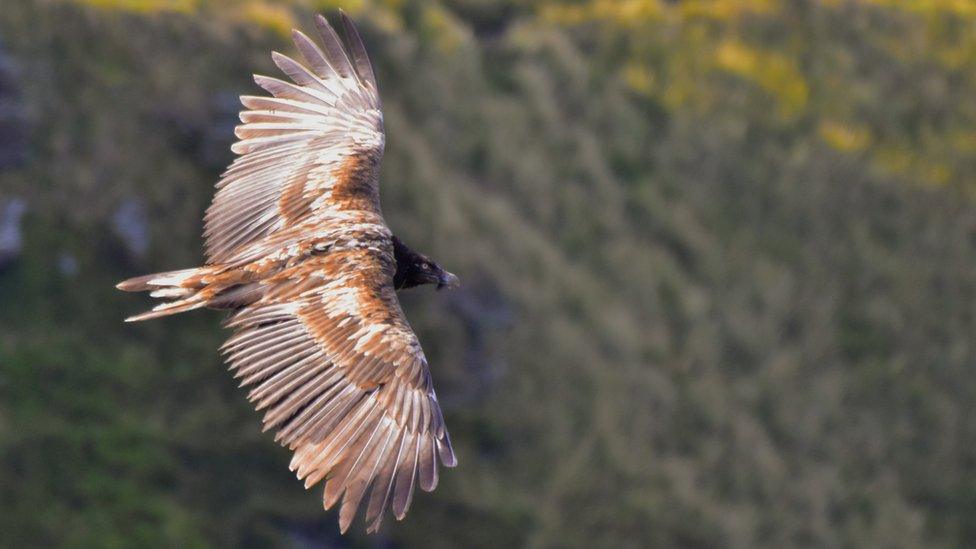Bearded vulture: Crowds flock to see rare bird over Lincolnshire fens
- Published
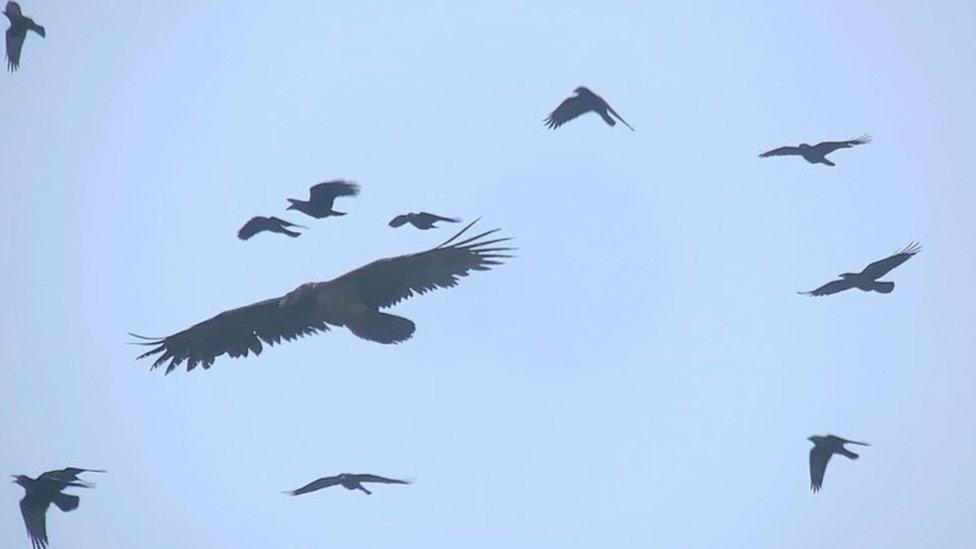
The rare raptor, seen only a handful of times in the UK, was spotted at Moulton West Fen earlier
An enormous bone-eating vulture, rarely seen in the UK, has been spotted in the skies over Lincolnshire.
The bearded vulture, or lammergeier, is normally found in Alpine regions, and has a wing span of 2.5m (8.2ft).
The rare raptor was captured on film by Mark Hawkes at Moulton West Fen earlier after news of its arrival circulated on social media.
It was recently spotted in Norfolk, having spent the summer roosting in the Peak District.
Mr Hawkes, who lives in St Neots, Cambridgeshire, said he drove to the area after reading the news on the "birder grapevine".
He was lucky enough to see the it flying around with crows, and later "sitting tight in a field", he said.
Mr Hawkes added that about 200 other enthusiasts had also made the trip.
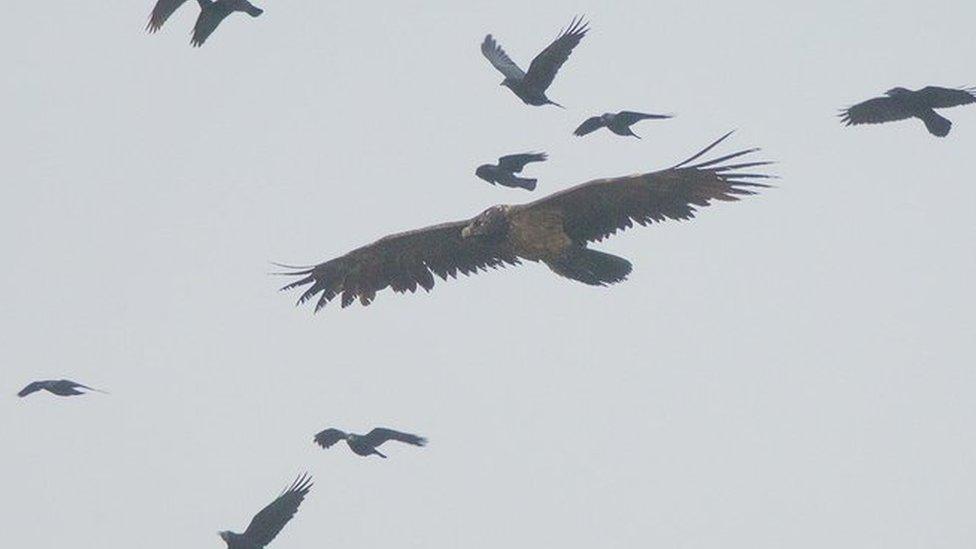
Another birder, Will Bowell, said it was an amazing sight to see, adding he was looking forward to seeing where it went from here.
The bird was first captured on film earlier this year in the Peak District.
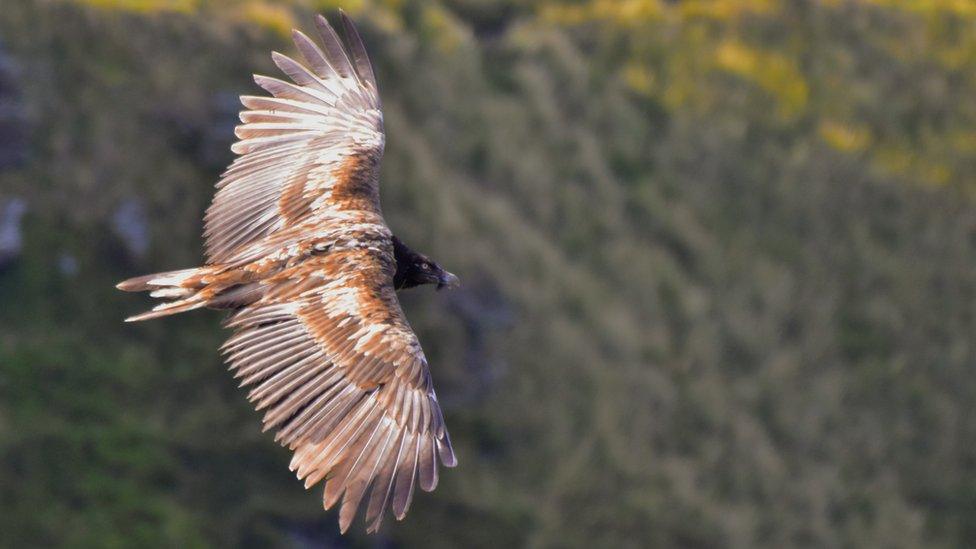
Teenager Indy Kiemel Greene photographed the bird in the Peak District in July
At the time, Tim Birch, from Derbyshire Wildlife Trust, said the bird - dubbed "Vigo" - was about two years old and had flown over to the UK from the Alps, where the endangered species is being reintroduced.
Previously, the only other reported sighting of a bearded vulture in the UK was in 2016, around Dartmoor and Monmouthshire.
But despite its enormous size, the bird is not dangerous to people or farm animals, and feeds on scavenged bones, Mr Birch added.
Bearded vultures are on the International Union for Conservation of Nature (IUCN) Red List - meaning they are a "near threatened" species.
They get their name from a distinctive tuft of feathers under their lower beak.

Follow BBC East Yorkshire and Lincolnshire on Facebook, external, Twitter, external, and Instagram, external. Send your story ideas to yorkslincs.news@bbc.co.uk, external.
- Published29 September 2020
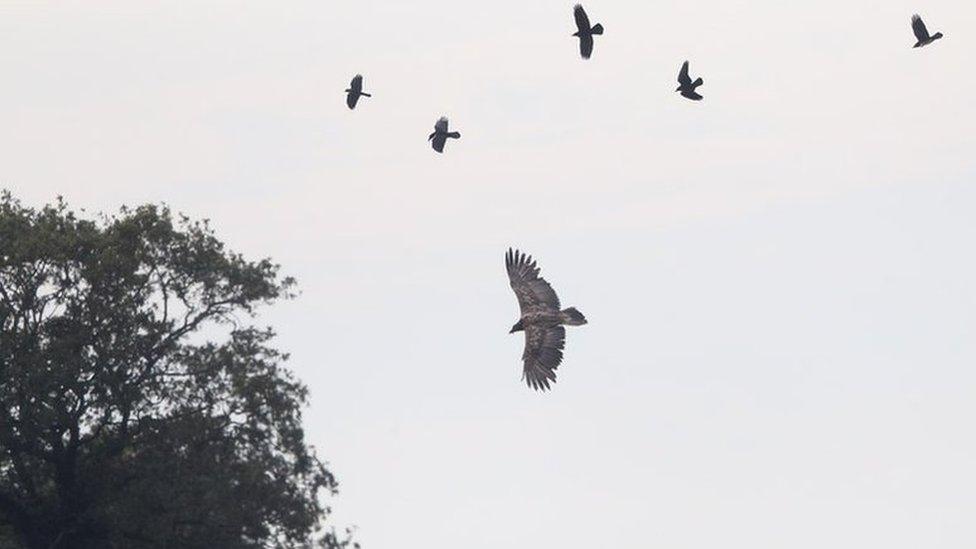
- Published13 July 2020
